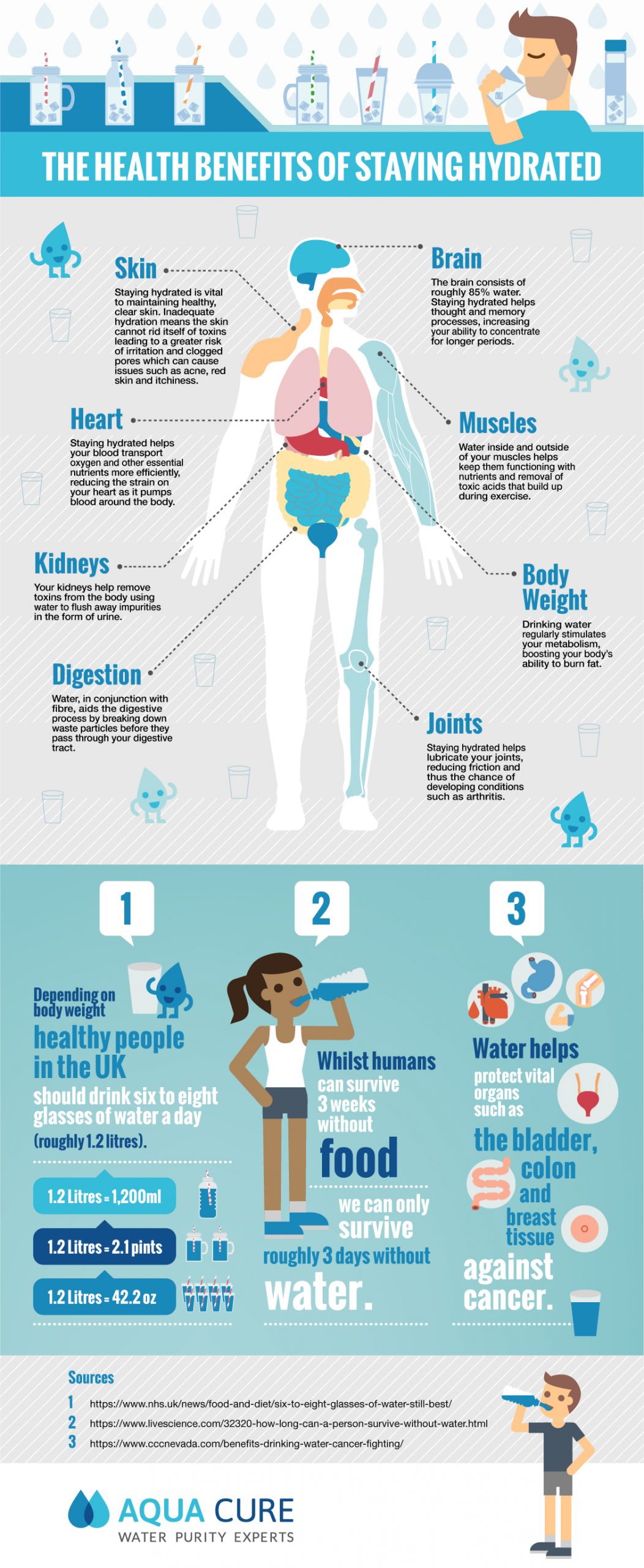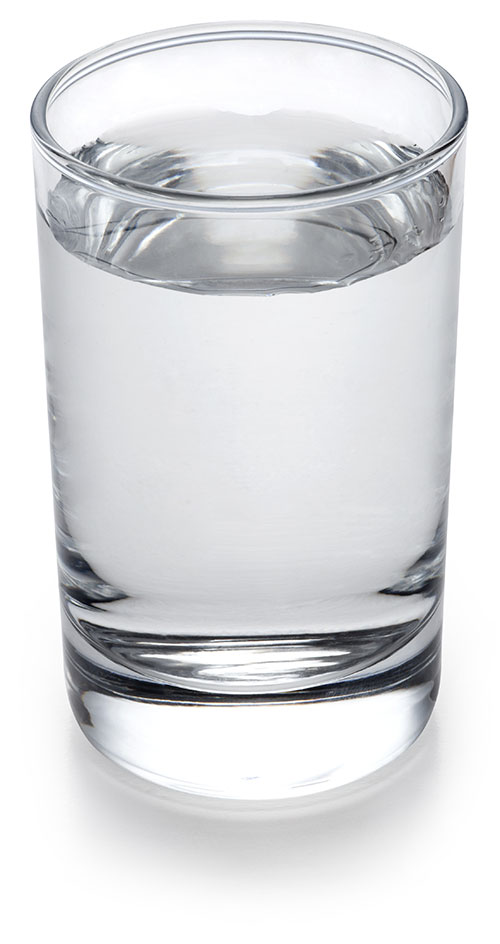We use cookies to make your experience better. To comply with the new e-Privacy directive, we need to ask for your consent to set the cookies. Learn more.
The Health Benefits of Staying Hydrated
The average human body consists of roughly between 57-60% water, for young children the rate is around 75-78%.
All that water in our bodies performs a number of extremely vital short and long-term functions - from maintaining concentration levels to reducing the risk of cancer.
We’ve collected some of the key health benefits of staying hydrated in the infographic below, along with some tips on staying hydrated in the article.

Embed This Infographic On Your Site
If you would like to feature this infographic on your site, please use the embed code below. Please include a link to https://www.aquacure.co.uk when you post this. The pixel width of the infographic can also be changed by altering the 'width' pixel value in the code below.
Tips For Staying Hydrated
 Although most of us are aware of the health benefits of staying hydrated, less than 1% of British people drink the recommended eight glasses of water each day.
Although most of us are aware of the health benefits of staying hydrated, less than 1% of British people drink the recommended eight glasses of water each day.
An astonishing one fifth of all GP visits in Britain are down to tiredness and fatigue, with 12% of these cases caused primarily by dehydration.
With the dangers of becoming dehydrated so clear, we’ve come up with a few tips on maintaining a healthy level of hydration:
- Consider eating food with high water content such as whole foods including cucumbers, tomatoes, carrots, watermelon, oatmeal, yoghurts and apples. Soup is another handy way to stay hydrated!
- Carry a re-usable water bottle with you so you’re not caught short whilst you’re on the move.
- If you are not a fan of drinking water, many other drinks can aid your hydration levels. Milk, juices and sport drinks all aid your tally, as do coffee and tea which used to be considered dehydrating due to their diuretic effect. However, alcohol, whilst hydrating at first has a negative effect on your hydration levels.
- Be reactive. Always be aware of the external influences on your hydration level such as temperature and activity level and adjust your water intake accordingly. In addition, if you are ill, experiencing diarrhoea or are vomiting you will become dehydrated far more quickly.
Water Quality is All Important
Water quality can be negatively affected by impurities leading to issues with taste, odour, limescale, bacteria and sediment. Due to this, many people only rely on bottled water, which is both bad for the environment and may lead to decreased water consumption as shops are not always readily available.
Poor water quality can negatively impact our health in a number of ways, such as hard water causing itchy skin, whilst poor water taste can be caused by chlorine added to the water supply, potentially leading us to drink less water than we need.
In general, tap water in the UK is exceptionally clean despite their being many scare stories in the media. However, if you live in an area with poor water quality or rely on a private water supply which may not be adequately treated, consider a water filter to remove impurities such as sediment, chlorine and hardness.
Six to Eight Glasses Of Water ‘Still Best’
The reality is that drinking water can significantly improve your mental and physical health. Depending on body weight and external temperature, healthy adults in Britain should drink between six to eight glasses of water per day (1.2 litres) according to the UK government.
The government’s guidelines stem from the amount of water we lose from regular activity, so increasing physical activity or sweating requires a larger amount of water to be consumed. With just a 1-2% drop in water levels, we start to feel thirsty. A drop of 5% leads to overheating, tiredness and a serious drop in our strength and endurance levels, showing the health risks in becoming dehydrated.
In summary, many people are preoccupied with finding more and more complex ways to combat different illnesses, weight gain and depression, however we recommend trying an easier solution first which may have been under your nose the whole time….the miracle of a simple glass of water!
